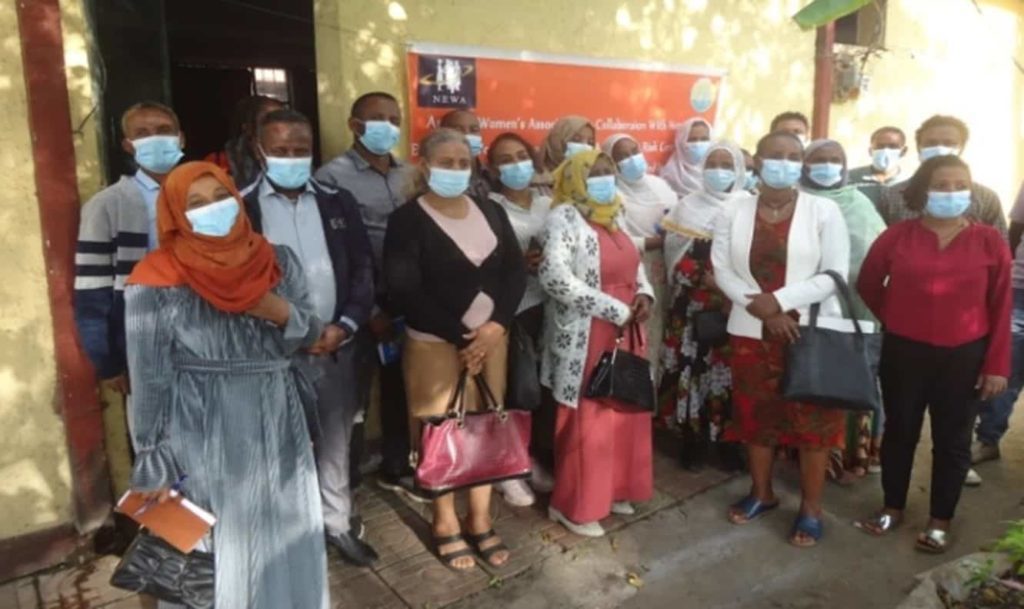For the past three years (2021-2024) Network of the Ethiopian Women’s Associations (NEWA) has been implementing a research project titled “Enhancing employment prospects of young graduate women into high value sectors in Ethiopia: An action research project.” The project was implemented in collaboration with two partner organizations, the Ethiopian Catholic Church Social and Development Commission (ECC-SADCO) and Abamela Consulting. The initiative was supported by IDRC’s Growth and Economic Opportunities for Women (GrOW) – East Africa program. The purpose of the research is to determine whether giving graduate girls access to employment information centers and training in soft skills improves their employability.
Most scholars agree that understanding the relative importance of technical, business, and life skills in labor market success is at the forefront of the youth employment research agenda. More urgently, reviews indicate that investigating the impact soft skills component by experimentation within an impact evaluation is highly encouraged, as there exists inconclusive evidence about its impact. In the case of Ethiopia, researchers observe high disregard for soft skills in higher education despite tight competition in the world of work where employers look for gradates with multiple skills in communication, problem solving and critical thinking. Also, observation shows that access to employment information centers for youth are rare despite efforts by the government.
A total of 1936 female graduates from three research sites (Addis Ababa, Hawassa, Jimma) were enrolled in the study. Among them, 588 were randomly divided into three groups: soft skills training, soft skills training and Job Centre services, and a control group that receives no service. The two intervention groups participated in short-term soft skills training focusing on emotional regulation, communication skills, self-esteem, and job readiness. The impact of this training on the lives of the graduate women was observed through the inspiring stories shared by study participants and the results an experiment that used Randomized control Trial (RCT) design.
Take for example the case of Rahel a 26-year-old accounting and finance graduate from Hawassa, who initially struggled to find employment after graduation. However, after participating in soft skills training and accessing job information services in her hometown, she was inspired to start her own business. Teaming up with a friend who also underwent the training, they opened a teahouse. With support from family, and friends, Rahel successfully established a profitable business, now earning a good income.
Subtle yet profound changes have unfolded following a period of soft skills training. These changes suggest a newfound sense of confidence, resilience in the face of challenges, and a shift towards viewing failure as a catalyst for growth. Despite its brevity, this program provided a nurturing environment where participants could explore their potential and develop the confidence to pursue their aspirations.
In addition, data from the research participants during the mid term survey showed the importance of soft skills training in enhancing young females’ career prospects, as it was found to positively affect the number of job applications submitted by the trained group. Results from the mid-term review indicate, the trained group had a higher mean score of 28.4 in emotional regulation skills, compared to the control group’s score of 27.6, demonstrating a significant difference and improvement in this area. In communication skills, the trained group scored 48.6, surpassing the control group’s score of 47.9, again with a significant difference. The self-esteem category showed a score of 46.1 for the trained group and 45.2 for the control group, indicating a significant improvement in self-esteem due to the training. In terms of job readiness, the trained group’s score of 28.7 slightly exceeded the control group’s score of 28.2, demonstrating a minor but significant improvement.
The link between the soft skills training and the observed changes appear to be achieved through different pathways. Many attribute their improved communication skills and self-assurance during job interviews or business endeavors directly to the training received. Moreover, the gradual transformation witnessed in these young women serves as a testament to the efficacy of targeted interventions in nurturing individual growth and empowerment.
The program’s transforming effect on young Ethiopian graduate women highlights the scalability potential and has policy implications for integrating soft-skills trainings into higher education.
Share this post: on Twitter on Facebook on LinkedIn


